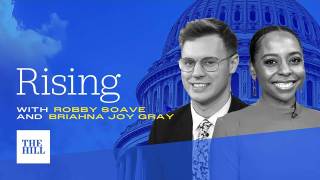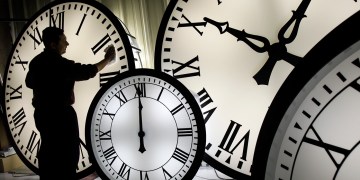Broken connections: Americans will lose if streamers monopolize live sports

Yesterday, the House Committee on Energy and Commerce held a hearing on the future of sports media in the streaming era. This conversation could hardly be more urgent, coming just a few weeks after Comcast/NBC took the unprecedented step of putting an NFL playoff game behind a paywall on Peacock, its streaming platform.
At the time, Peacock urged viewers to “be part of history,” but it wasn’t the kind of history-making event in which anyone involved should be proud. On the contrary, it was a shameful moment that merits congressional attention and action before we find ourselves facing a Super Bowl accessible only to those willing and able to pay to watch it.
There were, of course, “winners” in the live-stream-only playoff game. The Kansas City Chiefs beat the Miami Dolphins on the field. Comcast, the massive media conglomerate that owns Peacock, also won, by forcing millions of viewers to subscribe to the platform and fork over a significant fee to watch the game. The NFL was, perhaps, the biggest winner of all, receiving a staggering $110 million from Comcast for the right to stream this single game on Peacock.
Pretty much everyone else lost. Millions of football fans lost, including those who were forced to sign up for a streaming service they otherwise didn’t need or want, those who could not afford the subscription, and those who were unable to navigate the steps required to sign up or whose internet access wasn’t fast enough to support live streaming video. Across the country, millions of fans were left out in the cold on game night.
But the biggest hidden damage was done to local communities. For decades, virtually every community in America has counted on free over-the-air broadcast stations to deliver local news and weather programming, popular network content and “must-see” events like professional sports, especially the NFL. Even as the NFL moved some of its regular season games to cable, when it came to the playoffs, nearly every American household was assured access to every game through one of their local broadcast stations. Sadly, this is no longer true.
This development should raise alarms for everyone involved, because hidden beneath the veneer of this seemingly innocuous event is a looming threat. Most Americans are unaware of the thread connecting high-profile sports and live events, like the NFL playoffs, and the operation of local newsrooms. For local broadcasters, these events are a critical part of building an audience that can sustain the business and enable the delivery of the critical and life-saving news, weather updates and emergency alerts that millions of Americans across the nation rely on to keep them safe and informed.
If this continues — and, based on Comcast’s and the NFL’s press releases after the game, it will — America’s most popular sport will migrate away from free over-the-air broadcast television to a pay-per-view ecosystem. Ultimately, viewers will be the victims of an increasingly concentrated distribution strategy that fills the pockets of the wealthiest companies and leaves the average American paying more to watch the NFL.
The companies involved seek ever-increasing profits and more opportunities to squeeze money out of Americans. What’s more, these companies simply don’t care about the health and survival of local news — because if they did, they would be seeking ways to help build and sustain local audiences.
What we witnessed is just a prelude to what comes next. How many more years before the Super Bowl itself lives behind a paywall? Will these games and events only be accessible to those with the means to fork over large sums or who can afford multiple streaming services? Will the NFL and other sports leagues and team owners attempt to put their games behind a paywall — one that only they control? How long before that subscription comes with long-term contracts, fees and other onerous terms? And if this is the future, how long before local broadcasters, and the vital role they play in keeping our communities safe and informed, meet the same fate as local newspapers?
Today, local broadcasters stand as the last bastion of news delivered without a partisan agenda, a corporate interest or the hidden hand of a black-box algorithm. If local broadcasters go away, Americans will lose the last unbiased news source they trust. And when that happens, all bets are off when it comes to supporting and sustaining our local communities, which are the foundation of our very democracy.

The future doesn’t have to be so bleak. For years, corporate leaders have paid lip service to the idea that they serve stakeholders beyond just their shareholders. Policymakers of both parties have also said they expect businesses to put the public interest on par with their profit motive. If any of them mean a word of what they said, then let this be a test case. Let the networks, the NFL, the big tech companies and the other actors actively reshaping our media landscape commit to keeping the NFL, including the playoffs and other similarly important events and programming of national interest, freely available to all Americans on local broadcast television.
In doing so, they will not only be doing right by the public, they also will be protecting the entire ecosystem of local news and programming on which we all depend.
Emily Barr was previously president and CEO of Graham Media Group. She is a former chairman of the NBC Affiliate Board and a former chair of the ABC Board of Governors and of the National Association of Broadcasters TV Board.
regular post copyright









